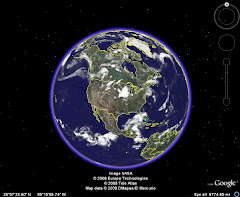
Digital citizenship is not new. It's been a topic of discussion before. At our school, our librarian is always talking to all the students about being responsible with technology. I know she will conduct a lesson with the kids before we even get to use the labs at all. So, what I plan may fall short of her lesson, but I'll give it a try:
1. I would start with the graphic above, and encourage discussion of what it means to kids and to me. It came from http://coolcatteacher.blogspot.com
2. Take time to explain each piece: let students share their own experiences with technology use at home and at school and relate that to each category. Digitalcitizenship.net has a great link to the Nine Elements that explains each one.
3. I would give students a topic to research on the internet to see how they could apply all the things we talked about in becoming an appropriate digital citizen. I really liked Cool Cat's blog about how kids just take the first piece of information they find and don't bother to look further. They are just trying to get done, and bringing that to light is important.
4. I need to find good resources to support curriculum, and share with students how I found it. We do this in other content areas when we share our thinking, so it seems right to do the same with technology.
5. This would take more than one lesson. It needs to be ongoing throughout the school year. In elementary school we teach citizenship for years in social studies. The same holds true for teaching about digital citizenship.
The article titled Digital Literacy in the Classroom raises an important issue: banning of sites in schools. In our district we still do that. Last year we lifted the ban on many sites and students were allowed to access more of the internet than usual. We started the year with discussions of what it might be like when you come to something that isn't appropriate for you. We didn't let students just come across it on their own, then teach about it. We started proactively by telling kids that they would indeed come across such sites, and discussed what to do about it. As a result, when it happened it was no big deal and the kids just closed that site and went on. That is critical for students to know.




No comments:
Post a Comment